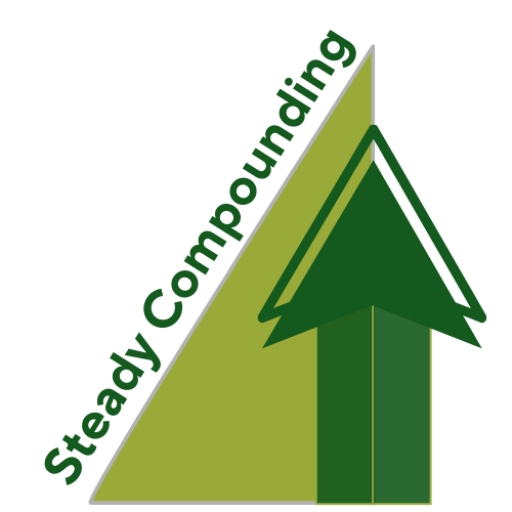Year 2020 definitely hasn’t just been another year. We have actually seen the streets go empty and the office migrated online due to COVID-19. This was previously an ‘impossible’ task as many companies cited security, morale, and productivity concerns.
Whether these changes are temporary or permanent will largely be determined by how much convenience these changes bring.
Solutions that reduce friction such as contactless payment and e-commerce will be here to stay. Online classes at least for students below 16 will probably not be permanent. Work-from-home arrangements and online meetings will probably lie somewhere in-between.
There are many lessons I have picked up. As the old adage goes, “Never let a good crisis go to waste.”
I will broadly classify my lessons as investing and writing online.
Investing
Do Not Interrupt the Magic of Compounding
Needless to say, the market caught most investors off guard with a V-shaped recovery.
This outlines the most important law of growing your wealth by Charlie Munger, “The first rule of compounding is to never interrupt it unnecessarily.”
This comes in two parts.
Firstly, ensure that your emergency fund and insurance are adequate before investing. The worst thing that could happen during a crisis is to sell due to loss of income or medical costs. COVID-19 showed that all three could happen at the time—loss of income, market drawdown, and increased medical cost.
Secondly, never time the market. Most investors who cashed out during March to buy back at a lower price probably never got to participate in the upswing.
Doing the Most Obvious Thing Works
In an interview with Gavin Baker, founder and CIO of Atreides Management, his advice for navigating bear markets is to do the most obvious thing and play in the present.
Don’t let anchoring or past mistakes affect your thinking. Take advantage of the volatility and the dislocation in value.
At the beginning of the bear market, doing the most obvious thing works, for example, selling airlines and buying Costco or Amazon.
Don’t Price Anchor
While I have no problem averaging down, averaging up is a tougher feat for me. As reminder to myself to always look forward, I keep in mind that if the company has been delivering and its outlook is rosier, it may be a better deal at a higher price.
Focus on valuation, not price.
Too Hard Pile
This is also the year where I revisited many companies is what Munger and Buffett calls the “too hard” pile.
“We have a method of coping: we just put it in the ‘too hard’ basket. If something is too hard, we move on to something that’s not too hard. What could be more simple?”
Charlie Munger
Apart from expanding my circle of competence, a sense of FOMO struck when I saw share prices zoom (pun intended) skywards.
This is a constant reminder to self that things belong to the “too hard” pile when (1) they are companies I don’t fully understand and (2) they have uncertain prospects over the next 10 to 20 years.
Swing at big fat pitches.
Options
Previously, I wrote off options without giving a serious thought to them.
This changed after listening to a sharing by MoneyWiseSmart on how options could complement long-term investing.
Quick example, during March 2020 I wish to accumulate more of Facebook’s shares but it hadn’t reached my target price of $140. Any price below $180 was considered cheap to me.
The risk of waiting is that the market may rebound and I may never get to accumulate more shares.
I could sell put options at $130+, which would allow me to own Facebook if it hit my target price. Otherwise, I could simply collect the premium while waiting.
At the same time, I would use the premiums to buy call options at a strike price of $180, which would allow me to capture the upside if the market rebounded quickly.
Brilliant move.
Writing Online
Writing online has been great. Anyone out there who wants to write, but has been putting it off, please revisit your priorities.
I’m able to learn better and think clearer. The biggest benefit though, is connecting with people smarter than me from all around the world.
Keeping it Simple
I have become a better learner by sharing what I know by implementing the Feynman Learning Technique:

I can keep it simple only when I fully understand the concept.
Other lessons I picked up as a writer this year:
Keep on Publishing
There will be many days when I don’t feel like writing or don’t feel like publishing.
This is especially true after publishing articles that went viral. The voice from within that says, ‘Perhaps this isn’t good enough,’ tend to be louder when there’s more to lose.
If we need to be 100% ready before executing, we will probably not execute at all.
Not ready? Do it anyway.
Good Content is the Best SEO Strategy
Be authentic. Escape competition by going in niches.
I focus on writing for myself, my own learning. The internet is a large place. You will be able to attract audiences who appreciate your specific writing style and topics.
Looking to 2021
A question I found helpful to reflect on: what would I do if I could not fail?
Often, we stifle our growth and dreams because we fear looking stupid or we have high expectations of ourselves.
I look forward to publishing more work in 2021, even those that will make me look silly from time to time. After all, learning takes place only when I leave my comfort zone.

